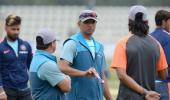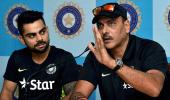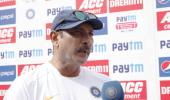The tough part about coaching is that you have to trouble the comfortable, and comfort the troubled, observes Sandeep Goyal.
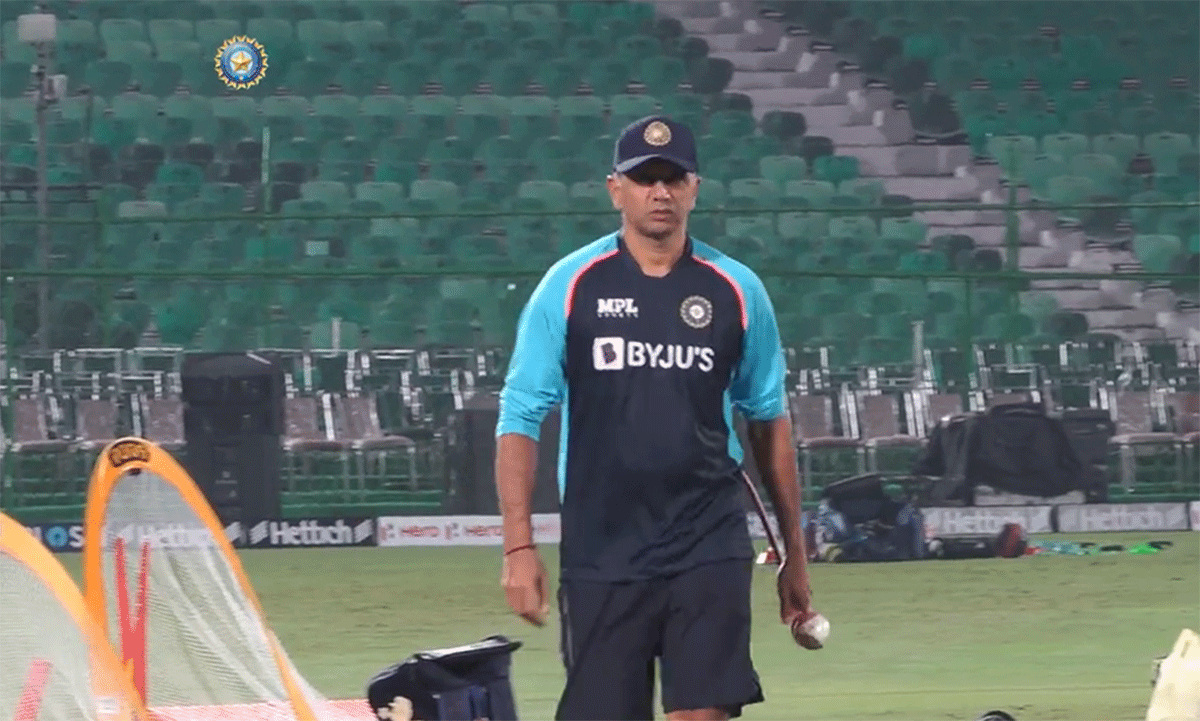
Will Rahul Dravid make a great head coach?
Actually, Ravi Shastri's comments while demitting charge, 'In Rahul Dravid, they've got a guy who has inherited a great team and I think with his experience, he can only raise the bar in time to come', brought back to me a conversation he and I had over breakfast in Dublin in the summer of 2018 during India's short tour of Ireland.
Managing the boys ain't an easy business, he had said.
Why, I asked? You don't realise that each of these 'boys' is actually a self-made millionaire, he exclaimed.
Actually, a millionaire many times over, most likely.
And they've, each one of them, earned tremendous acclaim, and fame too, in a very short period of time.
Each one of them has millions of social media followers.
Each one of them is widely recognised, most times almost worshipped as a demi-God.
Managing a bunch of 16 such superstars of the Indian cricket team over prolonged periods of time, through wins and defeats, highs and lows, tears and fears, is not easy.
To be honest, I had never thought of the 'boys' in the dressing room as a motley bunch of freshly minted millionaires! That too high on both fame-and-fortune.
To manage not just their performances, but also their enormous egos must be a tough task.
During Shastri's tenure, India reached their zenith in Australia where they defeated the hosts twice in successive tours, becoming the only Asian country to win a Test series down under.
With him as head coach, India played 43 Tests, won 25, lost 13, and registered 5 draws; played 76 ODIs, won 51, lost 22; and played 65 T20Is, winning 45 and losing 18.
Now that is a fabulous win record by any standards.
But India's 36 all out on December 17, 2020, versus Australia in a mere 21.2 overs also occurred under Shastri.
India's 8-wicket loss to New Zealand in the World Test Championship Finals also happened during Shastri's tenure.
The recent 10 wicket loss to Pakistan in the current T20 World Cup further blemished Shastri's record.
What did Coach Shastri do when the team hit all these all-time lows?
Did Shastri do some tough plain speaking at the post match team sessions?
Did he call out those who failed to perform and upbraid them publicly at the team meetings?
Or were there private dressing downs in one-on-ones?
Was the captain present? Or not?
Were there warnings issued? Hints (or threats) of being dropped?
Or did he wear kid gloves when dealing with the 'stars' in his charge?
Was he just all encouragement and kind words?
Now that he has retired, one would love to read Ravi Shastri's candid take on how he dealt with the superstars of Indian cricket, and was there a formula that he discovered (and perfected) along the way that helped him define how much of carrot and how much of stick was required when the team failed as a unit, and when individual players failed to deliver.
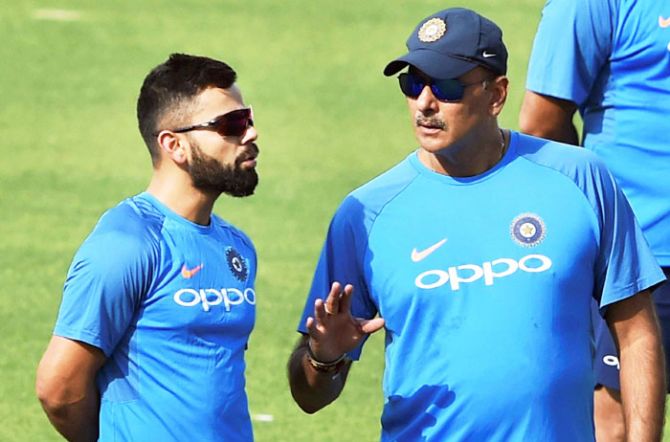
In the world of advertising, we too have to deal everyday with our own stars.
Yes, deal with their successes, and their failures.
A Cannes gold one day, a rejected campaign the very next day perhaps.
Jubilation, exhilaration and celebration on one day; tears, frustration and anger soon thereafter.
Guys and gals in advertising (and media) may not be as famous, or as rich as in cricket, but their self-view, their self-worth and their egos are no less colossal.
For managers of these precious 'boys' (and girls), dressing room lessons from Ravi Shastri would be priceless.
Where does one draw the line on reward and reprimand?
In my nearly four decades in the business, I have seen the ad agency use all possible measures to grow and reward talent: Salary increments, bonuses, more perks, bigger titles, foreign jaunts, overseas postings... but attrition has remained high irrespective of the largesse, or the quantum of it.
During the pandemic, most ad agencies resorted to substantial salary cuts. There was almost no resistance, nor protests.
Will Rahul Dravid as the new head coach do well? Known for his calm demeanour during his playing days, Dravid seems to exhibit exactly that unruffled cool as a coach too.
It is said that Dravid's philosophy as a coach is simple: Let the players be; do not tinker with their techniques unless absolutely necessary.
Most importantly, any coach (Dravid included) needs to signal to his wards that he cares for them and that they can count on him to mentor them, advise them, reassure them and stroke them through both successes and failures.
Few of us in responsible positions in most businesses actually know how to play 'coach' -- playing captain is much easier, more measurable and more meaningful.
The tough part about coaching is that you have to trouble the comfortable, and comfort the troubled. Hear, hear!
Sandeep Goyal is Managing Director, Rediffusion
Feature Presentation: Aslam Hunani/Rediff.com

